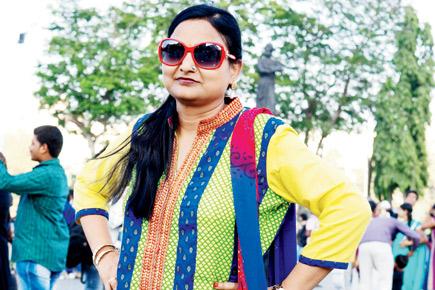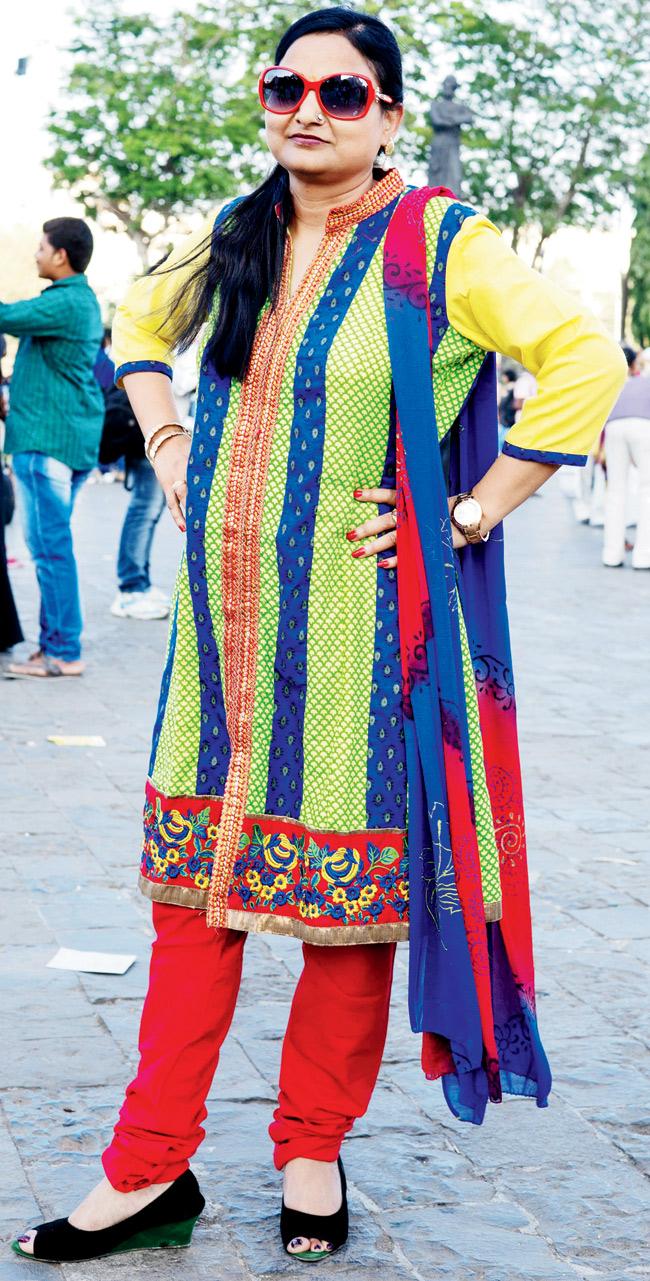In her project, Upping the Aunty, artist Meera Sethi captures the street style and attitude of the South Asian ‘aunty’ on Mumbai’s streets, finds Kareena Gianani

Poonam Aunty
An ‘aunty’ accent — an odd way in which some middle-aged women speak — was the topic of discussion when artist Meera Sethi recently sat chatting with her mother’s friends.
ADVERTISEMENT

Poonam Aunty poses for Meera Sethi’s project, Upping The Aunty. Pic/Meera Sethi
“Our comments got me thinking on how the ‘aunty’ is inseparable from the South Asians culture. Aunties have a significant role in our lives, especially if you’ve grown up abroad, like me. I’ve had aunties who have influenced me, been by my side, joke regularly — even asked uncomfortable questions, which is part of the package. Yet, the term ‘aunty’ is far from being flattering. I wanted to turn it on its head,” says Sethi over the telephone from Toronto. “And, of course, I’m close to auntydom, so maybe the motivation is personal,” the 38-year-old adds.
Sethi has now launched a project, Upping the Aunty (www.upping theaunty.tumblr. com), which documents street style of the South Asian aunty. In February, Sethi was in Mumbai for her art residency and went around aunty-spotting in the city. “I was keen on their personal style, how they put themselves together and celebrate auntyhood. I wanted to draw attention to aunties and the relationship we share with them,” she says. Sethi’s 26 photographs give a spin to the term which otherwise conjures images of women with dubious style.
As an artist, Sethi works with issues of migration, diaspora and hybrid identity. She is also interested in Indian pop culture, sartorial patterns and loves playing with colours. Little wonder then that a project on aunties gave her a most colourful palette. “The term usually brings to a mind a woman who doesn’t necessarily care about how she turns out, but look at these pictures — the sheer range of colours, fabrics, grooming habits and patterns on clothes is outstanding.” She was clear that her aunty would be everybody and anybody on the street. “This is about how an aunty wears what she wears, not about who wears it. I was keen on diversity — so there are Muslim, Hindu, Catholic and Sikh aunties here.”
Sethi got mixed reactions from the aunties she approached on the streets of Mumbai. “Some were flattered, while others were puzzled. The minute I would use the word ‘fashion’, many aunties agreed to be a part of this. In some cases, the men accompanying them disagreed, and they gave in, while in one case, the husband got excited though the wife had said no. But when she heard him, she jumped at the opportunity.
Some women said it made their day, and hugged me! That’s when it struck me how much I cherished the interaction with these strangers. On their part, someone celebrating what most people don’t notice must have been something,” she elaborates. Upping the Aunty, explains Sethi, will be a mixed-media project and the next step is to paint the aunties she has photographed. “I’ve always used my imagination to paint. It would be something to actually be true to life,” says Sethi.
 Subscribe today by clicking the link and stay updated with the latest news!" Click here!
Subscribe today by clicking the link and stay updated with the latest news!" Click here!







